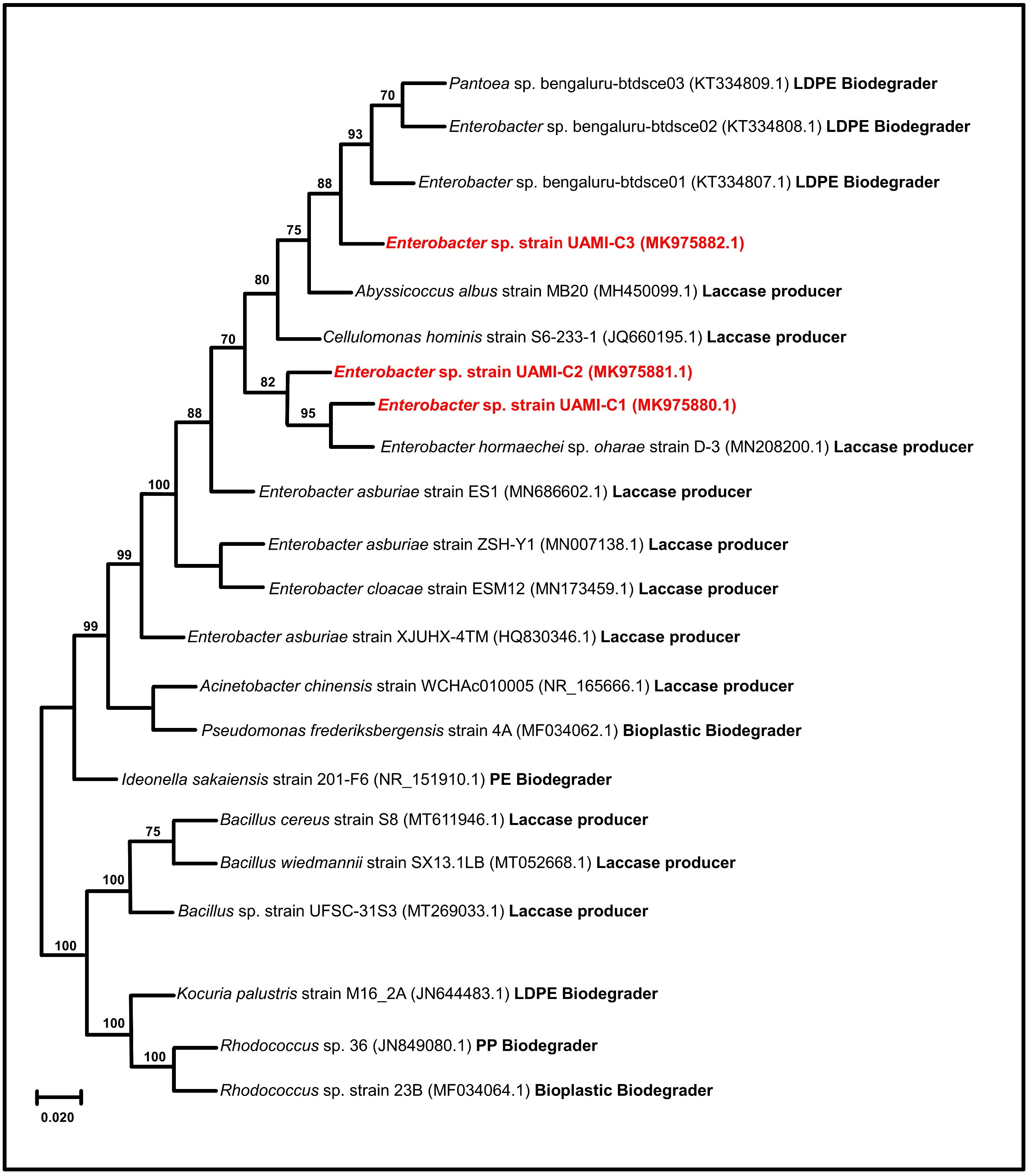 |
|
In this work, the ability to biodegrade two samples of polystyrene (PS) was evaluated: crystal and expanded with three bacterial strains isolated from PS waste collected in the municipal dump of Chimalhuacán, Estado de Mexico. The biodegradation potential of the isolated strains was determined by substrate weight loss assays. All bacterial strains were found to be able to biodegrade both types of PS. The study also aimed to determine if the isolated bacteria produce laccase since this enzyme has been reported with the ability to degrade polyethylene and other plastics. In addition, it was observed that when using copper sulfate as an inducer of laccase activity during biodegradation, there was an increase in both the enzymatic activity, as well as in the weight loss of the PS samples. The strain Enterobacter sp. UAMI-C3 proved to be the most efficient in the degradation of expanded PS with a weight decrease of 0.85% in 30 days with laccase activity at 9.803 x 10-3 U/mL. Therefore, so it is likely that laccase is involved in the biodegradation of this synthetic polymer.
Keywords: Polystyrene, biodegradation, Enterobacteria, laccase.
|
|
 |

